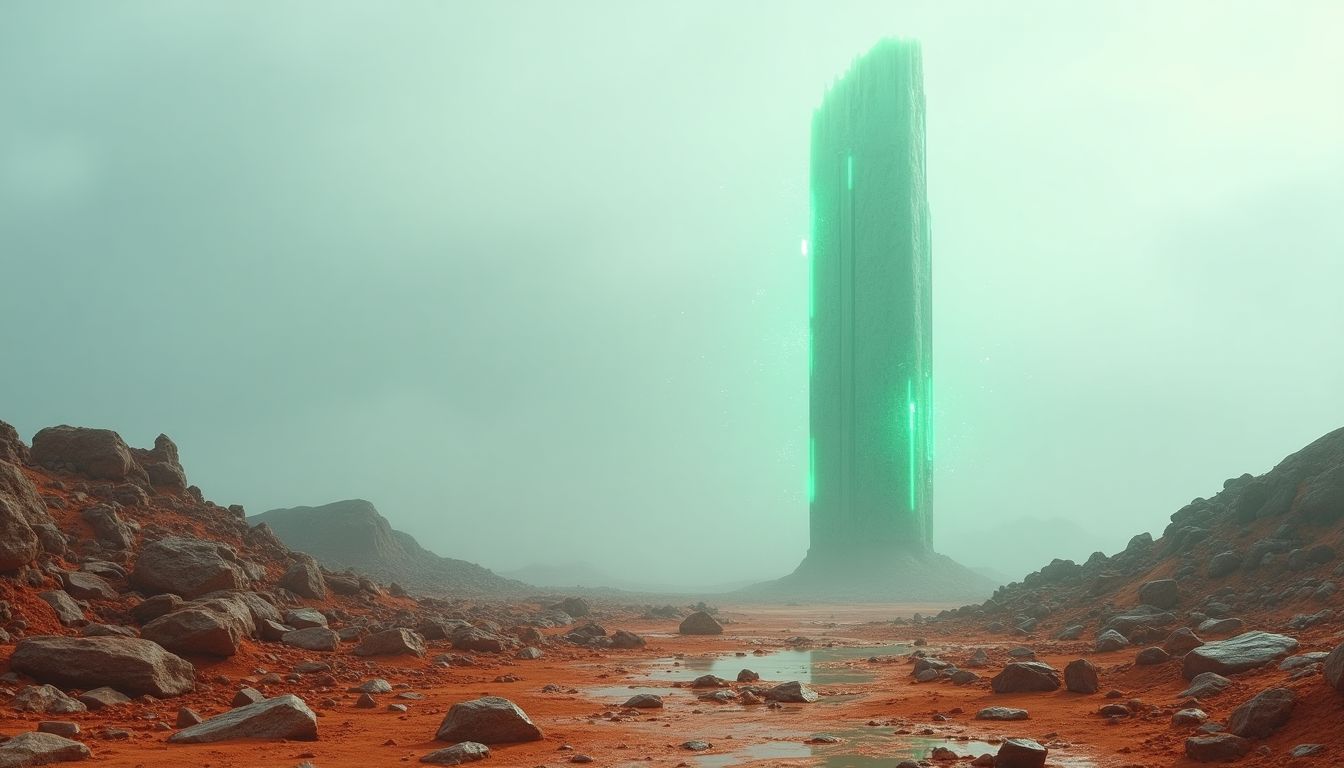It was the 22nd century, a time when cities floated above Earth’s dry, cracked surface, encapsulated in shimmering domes of atmosphere. Outside these domes, the land was an endless expanse of dust and decay. Humanity had advanced immeasurably, yet had largely failed in its stewardship of the planet. Drought lay heavy upon the Earth, and titanium-based aquifers glowed faintly under the crumbling soil, wrung dry of their last drops. This was the world Imara Dene inherited—a world gasping for breath.
Imara was unlike most of her peers in the dome cities. She had not grown up ensconced in one of the gravity-controlled high-rises or celebrated by the elite for her family’s affluence. She had been born in the Outskirts, where artificial lights dimmed to conserve power, and meals were rationed as tightly as words of hope. The daughter of an astrophysicist and a hydrologist, Imara struggled between the worlds of science and survival. Her life was shaped by the sound of her mother’s voice reading old journals on water purification and her father’s experiments with atmospheric moisture collection.
At twenty-five, Imara had carved out her own identity. Her tall, athletic frame balanced strength and agility, a necessity in a world where physical endurance was still paramount. Her skin bore the glowing bronze hue of solar conditioning, and her sharp, almond-shaped eyes—a mix of dark green and amber flecks—were always scanning her surroundings. Imara wore a practical but distinctly modern outfit: a recycled composite jumpsuit with reinforced mesh panels, paired with a belt of tools she’d crafted herself, including a worn knife etched with “Eternal Drought, Eternal Fight.” Her wild black curls were tied back in a copper headband infused with thin solar collectors. She was a blend of old-world beauty and cutting-edge ingenuity.
The Mission
Imara was pacing inside the council chamber of Altrium Dome, addressing a select committee of Earth's leaders. “You’ve lost sight of the bigger picture,” she said, her voice resonating with the kind of authority one could not fake. “Water doesn’t care about your industries, your barriers, your greed. Solve this crisis, or we all collapse together.” Her words were met with nods from most, with a few arched brows and taut lips from the more resistant among them.
In a rare show of unity, the council had approved her daring plan. The Gaia Nexus—a monolithic structure built centuries ago, hidden beneath the snowless Arctic—had been humanity’s last attempt at terraforming Earth. After its failure, it had been abandoned to fall into ruin. Imara’s team had theorized that deep under its surface lay dormant geo-engineered bacteria designed to rejuvenate soils and capture atmospheric moisture.
“You understand,” said Chancellor Reegan, a gaunt figure wrapped in layers of silver diplomatic robes, “no one believes this will work, not even half of us here.”
“And yet,” Imara countered, calm and defiant, “you’ve nothing better. Or are you content letting the sands eat your towers?”
The small smirk that followed was unintentional, and it infuriated Reegan.
The Arctic Wastes
Imara’s team, a mix of scientists, engineers, and survivalists, consisted of nine individuals she handpicked for their resilience and intellect. As their transport left the protective dome, the real world clawed at them—winds laced with abrasive sand that etched micro-scratches into their sturdy visors. Imara’s heart rate spiked but steadied as her boots touched the cold metal surface of Gaia Nexus for the first time.
The landscape here was hauntingly alien. The sky was pale grey, stretching endlessly above ochre earth. Chunks of twisted steel and shards of polymer from abandoned terraform trials punctuated the desolation. Imara stood in awe of the entrance: a towering lattice of crystalline material coated in living algae—designs far ahead of her time. Despite centuries of neglect, its structure still pulsated faintly with emerald energy.
With an ancient access code decoded from her parents’ old logs, the Nexus groaned awake. There was a moment when time seemed frozen. Muted sparks erupted along corroded wires as their path into the depths opened, inviting them into Earth’s forgotten hope.
The Betrayal
Inside, the group faced a labyrinth of failing systems and complex organic tech that had partially fused with the building's symbiotic architecture. But the crux of their mission—the chamber housing the geo-bacteria—remained locked under an impenetrable layer of ice, hardened by centuries of artificial cooling mechanisms.
“It’s frozen solid,” murmured Ira, the geothermal specialist. “We’ll need every ounce of heat power we’ve got.”
Imara’s blood chilled next, but not from the ice. She noticed movement in the reflection on a nearby wall. Turning swiftly, she saw Reegan, of all people, standing with two private security officers at his side, weapons drawn. They had slipped in while her team focused on excavation.
“What on Earth are you doing?” she demanded.
“This technology will not belong to the world,” Reegan sneered. “It’s *too* powerful. It will belong to Altrium, and to those who understand its value. Surely you didn’t think we’d gamble Earth’s future on an Outskirts girl?”
“You fool,” Imara hissed. “It’s not mine, it’s not yours—it belongs to the planet. You’d steal the last chance we have?”
The room erupted into chaos. Reegan and his team opened fire on Imara’s crew. The air hummed with the electric discharge of plasma rifles. Imara dove behind a metal pillar, adrenaline coursing through her veins. Her jumpsuit was designed for resilience but not combat.
Victory in Ash
In the end, Imara’s intelligence and her crew’s bravery overwhelmed Reegan’s team. A last-minute surge of ingenuity led to the heat reactivation of the bacterial chamber. With Reegan subdued and locked away in the Nexus’ containment unit, their fight turned once more to survival against the environment outside.
The geo-bacteria were released, and deep in Earth’s crust, life began again. The first subtle shifts of temperature signaled a dormant planet waking, even as Reegan’s arrogant greed gnawed at Imara’s mind.
Above ground, under a brighter sky filled with unfamiliar clouds, Imara stood and looked at her team. “What happens next isn’t guaranteed,” she said, voice thoughtful yet defiant. “But today we’ve done something every fool in power told us was impossible.”
Watching the faint shimmer of photosynthetic bacteria spreading across the horizon, Imara knew this was only one war in a long battle. But, for perhaps the first time in forever, humanity had hope.
And hope, she thought with a smile, was as essential as water.
The Source...check out the great article that inspired this amazing short story: Global UN Report Warns of Imminent 'Existential Crisis' Destroying Crops, Leaving Billions Facing Starvation - Three-Quarters of Earth's Land Permanently Drier in Last Three Decades
Disclaimer: This article may contain affiliate links. If you click on these links and make a purchase, we may receive a commission at no additional cost to you. Our recommendations and reviews are always independent and objective, aiming to provide you with the best information and resources.
Get Exclusive Stories, Photos, Art & Offers - Subscribe Today!

























Post Comment
You must be logged in to post a comment.